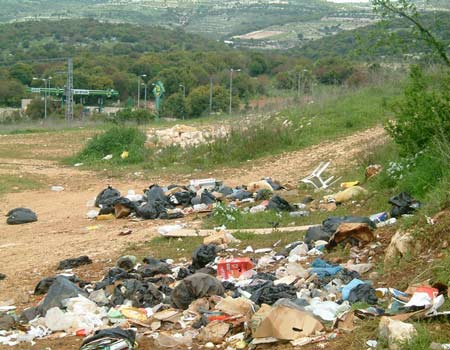[...] during more than 40 years of Israeli control, the West Bank has become, either consciously or unconsciously, our garbage dump, and particularly that of the settlements and illegal outposts in the area. Toxic sewage from plants and sewage systems pouring into Palestinian agricultural and pasture areas are a routine matter. [...] The sewage and waste cause irreversible destruction and damage to the natural springs in these areas and to ground water in aquifers. Olive trees and crops belonging to residents in the territories are damaged forever; nature reserves or areas that were supposed to be declared as such are damaged and neglected, along with the direct damage to flora and fauna, and to the entire delicate ecological system that exists there. [...] The environmental hazards will not disappear even if we build a fence or define the territories as enemy territory. The area, in and of itself, is homogenous, despite the two peoples living there.

West Bank ecology. Picture from original article.
